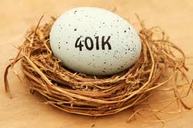
A. Generally speaking, a target date retirement fund automatically adjusts the stock/bond holdings when approaching its predetermined target date, so an investor can sit back and relax.
Unfortunately, you pay a price for it. And there are a few other considerations as well.
First, your investment style
Are you an active or passive investor? Most target date fund investors prefer their target date funds hold low cost index funds. That's the reason Vanguard's target retirement funds are very popular nowadays.
Second, consider expenses
Vanguard's target retirement funds have the lowest expenses. Followed by Fidelity's Freedom Index funds. However, investors typically forget to consider the holding funds' expenses which you have to pay for as well. So target date fund expenses are actually not low, if you are DIY investor.
Third, end stage holdings
How the target date fund invests when it approaches the target date is also important. Most funds will put more holdings in bonds, however, Morningstar studies indicate the funds that still hold a relatively higher portion in stocks have a higher chance for a better return well into your retirement time, such as when you approach the age of 95. This is also consistent with a recent academic finding.

 RSS Feed
RSS Feed
